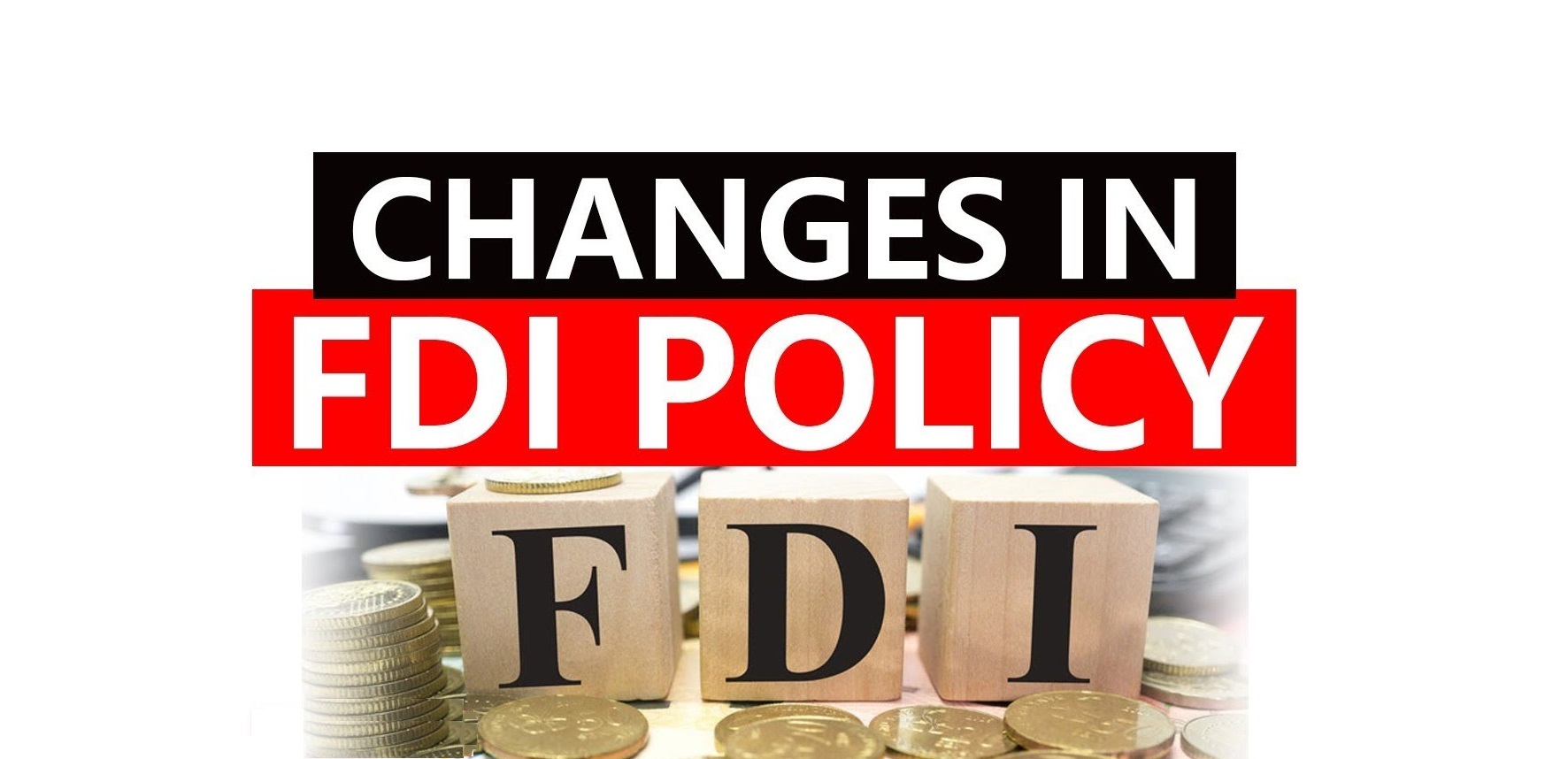Economists in India and market experts have said that the Government of India is now officially in a protectionist mode.
The result of the novel coronavirus pandemic on the global economy is something beyond comprehension until countries, including India, come out of lockdown mode. In a move which is being received with enthusiasm for the most part in India amid fears of takeovers of Indian domestic industries, the Department for Promotion of Industry and Internal Trade (DPIIT) has, by Press Note No. 3 (2020 Series), amended the Foreign Direct Investment (FDI) policy for curbing ‘opportunistic takeovers/acquisitions of Indian companies due to the current COVID-19 pandemic’. In light of the said press note, the Government of India has revised its FDI policy. “The changes are in line with protective positions taken by many European countries and seem to be primarily aimed at restricting foreign investments from China, especially in critical industries”, said by experts interpreting the move called up by Government of India.
Background
In India’s perimeter, the FDI policy allows foreign investment in some specified industries under the automatic route subject to the ceiling set out in that industry. For example, 100% FDI is allowed under the automatic route in manufacturing, oil and gas, construction, railway infrastructure, greenfield airports etc. In industries other than those specified above, the FDI is allowed under the automatic route up to a specified limit, say 26% or 49%, and for any additional foreign investment it requires an approval from government. Industries such as broadcast and print media, aviation, defense and other sectors are covered under the restricted policy. There also exists a list of restricted sectors, such as lottery, cigarettes, atomic energy.
Effect/Implication of the amendment
The amendment to the FDI policy states, “A non-resident entity can invest in India, subject to the FDI policy except in those sectors/activities which are prohibited. However, an entity of a country, which shares a land border with India or where the beneficial owner of investment into India is situated in or is a citizen of any such country, can invest only under the government route.”
The government has now shrunk the ambit of eligible investors. It has stated that entities from those countries that share a land border with India will now be allowed to invest only via approval route. This restriction will also apply even if the beneficiary of the investment is an entity situated in or a citizen of these countries. Though, India shares its land borders with countries including Pakistan, China, Nepal, Bangladesh, Bhutan, Myanmar and Afghanistan. It is important to infer that the rules have not only been tightened for fresh FDI but also for existing FDI. In case of transfer of ownership of any existing or future FDI where the direct or indirect beneficiary is from any of the above stated countries will also require a government approval. The amendment requires injecting certain investment through the government approval route only, and not through the direct route of investment. This would enable the government to monitor and keep an eye over the extent of these investments and give its approval, should it choose to do so.
The decision came out at the back of the People’s Bank of China (PBoC) raising its holding from 0.8% to 1.01% in India’s largest non-banking mortgage provider HDFC. It came as a thrill with many questioning the buying by Chinese entities at a time when the world is confronting with its one of the worst economic crisis. The protagonists of the open market theory may argue that the move of the Government of India primarily seeks to target China, and high chances are they may be right in that analysis. However, in light of the fact that COVID-19 emerged from Wuhan, China and with several countries calling for precautionary measures to safeguard their businesses and entities operating from within its borders, this argument holds good for nothing given that if such takeovers do actually take place, India may open from the lockdown and find several of its entities operating under the beneficial ownership of Chinese entities.
Additionally, this is not the first by state when a country like India has demanded for such a move because we have evidence that Australia and several countries in Europe like Germany, and the Czech Republic have already put in place plans and concrete measures to stop such opportunistic takeovers/acquisitions in recent months. What is interesting, however, is the fact that the Government of India is not today concerned with possible suspected takeovers from US-based or European entities, rather its attention seems to be more focused on entities supported by the People’s Republic of China.
Along India’s borders, it is well-evident that China is seeking to rise its foothold in the region and the China Pakistan Economic Corridor (which has constantly been met with opposition by India) that would give China access to ports is one such fine example of how Chinese invade in areas too close for India’s comfort. In fact, there are certain reports that state that China has raised its investments in infrastructure projects in Pakistan in light of this proposed project. In India’s point of view, Chinese investments have risen from $1.8 billion in 2014 to an estimated $8-9 billion in 2017. Greenfield investments have also seen a significant spurt. Other Indian entities have seen an inflow of Chinese investments into it. These are not miniscule increase in investments.
When India liberalized its market in the early 1990’s with Dr. Manmohan Singh at the helm of the Finance Ministry, the decision resulted to be a move which saw the economy being given a shot in the arm and set India up to be a powerhouse in the coming decades. Today, with its decision to confine investments in country, the Government of India under the leadership of PM Narendra Modi has decided that it is in India’s best favor to get rid of this pandemic situation with its industries and entities intact and still in Indian control.
Observers argue that it would not be favorable for India if the Chinese companies keep investing in Indian entities during the time of the global coronavirus pandemic, provided that those in the industry are worried of the fact that these entities may be backed by the Chinese government to make inroads into global jurisdictions including India. Though, the decision of the Government of India to amend its FDI policy amid pandemic situation and restrict foreign investment may not be completely protectionist in nature, but antagonistically, could be referred as one which will ensure that none of Indian entities shall be shortchanged during the time of global coronavirus pandemic.
How did China and WTO react?
As predicted Beijing’s reaction has been strong with the Chinese Embassy in India and Ji Rong, the spokesperson of the Chinese Embassy in India Counselor, in a statement, said, “The additional barriers set by Indian side for investors from specific countries violate WTO’s principle of non-discrimination, and go against the general trend of liberalization and facilitation of trade and investment. Companies make choices based on market principles. We hope India would revise relevant discriminatory practices, treat investments from different countries equally, and foster an open, fair and equitable business environment.”
Further, China also accused India of not conforming to the consensus of G20 leaders and trade ministers to realize a free, fair, non-discriminatory, transparent, predictable and stable trade and investment environment, and to keep our markets open.
According to what experts say, “India has all the rights to fence its domestic industry in such a critical crisis situation, and making an approval from government mandatory for FDI from neighboring countries is no way a violation of norms of the World Trade Organization (WTO).” Additionally, Biswajit Dhar, a professor of international trade at Jawaharlal Nehru University in New Delhi, also confirmed that no WTO rules had been violated by India. Dhar also agreed that at the G-20 trade ministers’ meet held last month countries had agreed to keep markets open. “But one has to temper that with the reality on the ground, the possibility of hostile takeovers was very much real in the present economic environment”, Dhar said.
To conclude, the amendments have been made only to foreign direct investments and not foreign portfolio investment rules. India will come out of COVID-19, and when it does, there is absolutely no doubt that it would be in India’s best interest to have ownership of its entities intact and in Indian control.
At AJSH & Co, we assist our clients in setting up their businesses in India and ensuring they comply all statutory requirements in a timely manner. To know more about FDI norms in India, you may reach us click here.





